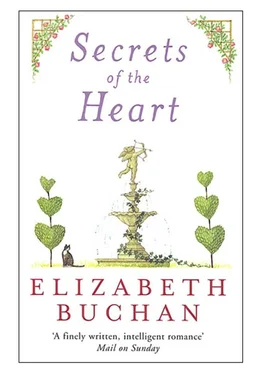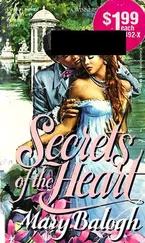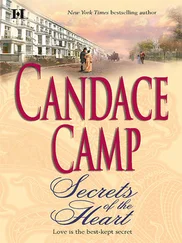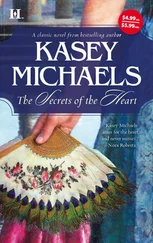Elizabeth Buchan - Secrets of the Heart
Здесь есть возможность читать онлайн «Elizabeth Buchan - Secrets of the Heart» весь текст электронной книги совершенно бесплатно (целиком полную версию без сокращений). В некоторых случаях можно слушать аудио, скачать через торрент в формате fb2 и присутствует краткое содержание. Жанр: Современные любовные романы, на английском языке. Описание произведения, (предисловие) а так же отзывы посетителей доступны на портале библиотеки ЛибКат.
- Название:Secrets of the Heart
- Автор:
- Жанр:
- Год:неизвестен
- ISBN:нет данных
- Рейтинг книги:5 / 5. Голосов: 1
-
Избранное:Добавить в избранное
- Отзывы:
-
Ваша оценка:
- 100
- 1
- 2
- 3
- 4
- 5
Secrets of the Heart: краткое содержание, описание и аннотация
Предлагаем к чтению аннотацию, описание, краткое содержание или предисловие (зависит от того, что написал сам автор книги «Secrets of the Heart»). Если вы не нашли необходимую информацию о книге — напишите в комментариях, мы постараемся отыскать её.
Secrets of the Heart — читать онлайн бесплатно полную книгу (весь текст) целиком
Ниже представлен текст книги, разбитый по страницам. Система сохранения места последней прочитанной страницы, позволяет с удобством читать онлайн бесплатно книгу «Secrets of the Heart», без необходимости каждый раз заново искать на чём Вы остановились. Поставьте закладку, и сможете в любой момент перейти на страницу, на которой закончили чтение.
Интервал:
Закладка:

Elizabeth Buchan
Secrets of the Heart
© 2000
For my mother, Mary Oakleigh-Walker, and my sisters,
Alison Souter and Rosemary Hobhouse, with love
‘“Will you tell me how long you have loved him?”
“It has been coming on so gradually, that I hardly know
when it began. But, I believe I must date it from my
first seeing his beautiful grounds at Pemberley.”’
Jane Austen, Pride and Prejudice
Several books have been invaluable during the course of writing this novel. Leo Marks’s Between Silk and Cyanide (HarperCollins, 1998), Elinor Fettiplace’s Receipt Book by Hilary Spurling (Viking, 1986), The Farming Ladder by George Henderson (Faber, 1944), Simon Schama’s Landscape and Memory (HarperCollins, 1995), Guide to Bees and Honey by Ted Hooper (Marston House, 1997). I took factual information and drew on ideas from all of the above. Any mistakes are entirely mine.
Very many thanks are due to my editor, Louise Moore; the team at Penguin; my agent, Mark Lucas; as always, Hazel Orme; and Stephen Ryan. Especial thanks are owed to Richard Vines, producer of superb beef, who allowed me to pester him for details of how he runs his farm and business, Wild Beef. Also to Shervie and David Price and Elisabeth Murray for generously allowing me to make use of their material. I must also thank my family and friends for all their support and encouragement.
1
When he was alive, Agnes told her uncle more than once that if he had been a different sort of man it would not have been the same story at all. ‘Oh, no,’ he said, ‘the house was waiting for you.’ Together they laughed about it, conspirators who understood each other perfectly.
Sometimes Agnes was taken aback by the depth of her feeling for Flagge House, the beautiful, big-windowed manor set in a water-meadow that had been in the Campion family for four hundred years. It was home and that was sufficient reason to love it. Yet it was also the material of fantasy and dream, an idyll of pastoral life and of a history that was vanishing. To all these Agnes clung – probably, she told herself, as a compensation for her sad circumstances. And as she grew from an awkward adolescent into a woman whose looks and success excited comment, she remained bewitched by her vision of the house and its past. As such, she was doubly bound in its coils of obligation and feverish romanticism, a maiden marooned on a rock but happy to be so. Her passion had been long-lived, for Agnes, now thirty, had first stepped into its flagstoned hallway, over which the sun had spilled a golden halo, at the age of twelve and had been instantly captivated and the intensity of her feelings had not diminished one iota.
Yet… and yet, as with all great enduring loves, occasionally in her busier, professional moments, when Agnes was away from home and operating as the documentary producer, she grew impatient with its demands, even perhaps a little embarrassed by its hold on her spirit.
But not for long.
Separated by a ten-year gap, her uncle John and his younger brother, her father, had not got on. ‘Billy could never accept his bad luck at being the younger,’ John explained. ‘It made trouble between us and that’s why your parents went to live in Cape Town.’ However, when both her parents had been killed in the car crash on the dangerous Cape to Fishhoek road, John had immediately come to the rescue and brought Agnes back to Flagge House. ‘Children,’ he said staring at his niece through his glasses, ‘are far more important than feuds. Never forget it.’
He and Maud, his wife, were childless and, for a time, they were at a loss as to what to do with Agnes. Maud’s solution was to regard her with bewilderment, but John’s was kinder and cleverer. ‘Come with me,’ he said. ‘I’ve got such stories to tell you.’
In 1589, the first Campion rode into Charlborough and surveyed the site.
He led her from room to room and positioned her in front of the Campion portraits. Fighters, failures, wise administrators, spendthrifts and, a special category, religious martyrs. Here was a Rupert, who had died of his wounds at Naseby, there a bridge-builder in India. ‘And this,’ he said, placing his hands on her shoulders and steering her close up to the portrait in the hall, ‘is the other Agnes Campion.’ A large-eyed woman, fair hair drawn back into a tight knot with ringlets, she was wearing pearl earrings into which the painter had incorporated highlights with oil-slick colours. She had died at the age of thirty-one in 1650, from one childbirth too many. ‘She can be your special companion,’ advised her uncle shrewdly. ‘And you have her look. We’ll make it our project to find out about her.’
What had they found in their shared search through the family archives? That the dead Agnes had been a legendary cook, almost modern in her use of fresh vegetables and herbs. In January, she served her household with ‘showlder of muttone and bagge pudding’. In December, ‘salte pigge with boyled carrottes’. They found the letter written by her widower with instructions for her tombstone to be inscribed with ‘From One Who Loved Her’. They found her will.
Agnes Campion. Her will. I give and bequeath to my husbande my inlayde cabnott, desiring him to accept it, should I dye being with childe…
They had never discovered if the ninth child, the one who killed her, had survived.
This is real history, her uncle taught Agnes, ushering her through the rooms where thrift and utility had reigned: rooms where fruit and vegetables were stored, herbs dried, meat salted, where the women laundered and sewed and kept an inventory of every scrap of clothing. ‘This history tells no lies. It is’, he said, ‘the small alleyways and courtyards, the mud paths beaten into iron by countless feet that make up the truth.’
A month or so before he died, her uncle went blind. ‘No matter,’ he said, in his gentle way. ‘It is to be expected.’
Her heart breaking for the second time in a year, Agnes sat by the bed in the blue room where the spiders made free in the cornice and the cracks ran in dark tributaries across the walls. It was shrouded by the drawn curtains, and borrowed heaters exuded uneven pockets of warmth. She held his hand. ‘Is there anything I can do to make it more bearable?’
His flesh felt lifeless. ‘There is one thing,’ he said. ‘Do you think you could bring up my Jane Austens and put them on the bedside table? I miss them.’
Trying hard not to distress him with her weeping, Agnes went downstairs into his study, searched for the books amongst the papers and unpaid bills and carried them upstairs. She guided her uncle’s fingers over the pile, which she had placed as close to him as possible. The encounter between his fragile fingers and the worn bindings was of old companions. ‘All my life,’ said John, ‘these have been my friends, and I don’t want to abandon them now.’ Exhausted by the effort, he lay back and was quiet.
Neither Maud, John’s wife of forty-five years, nor the nurse approved of this sentimentality. At regular intervals, they attempted to move the books out of the way of the medicines and necessary equipment. At one point Maud, threatened by what she saw as Agnes’s indulgence, snatched up Persuasion and threatened to throw it away. Agnes won and was rewarded by her uncle’s patient smile.
In the lucid moments that were left, John chose to say the things that Agnes already knew but wanted to hear again.
Читать дальшеИнтервал:
Закладка:
Похожие книги на «Secrets of the Heart»
Представляем Вашему вниманию похожие книги на «Secrets of the Heart» списком для выбора. Мы отобрали схожую по названию и смыслу литературу в надежде предоставить читателям больше вариантов отыскать новые, интересные, ещё непрочитанные произведения.
Обсуждение, отзывы о книге «Secrets of the Heart» и просто собственные мнения читателей. Оставьте ваши комментарии, напишите, что Вы думаете о произведении, его смысле или главных героях. Укажите что конкретно понравилось, а что нет, и почему Вы так считаете.








